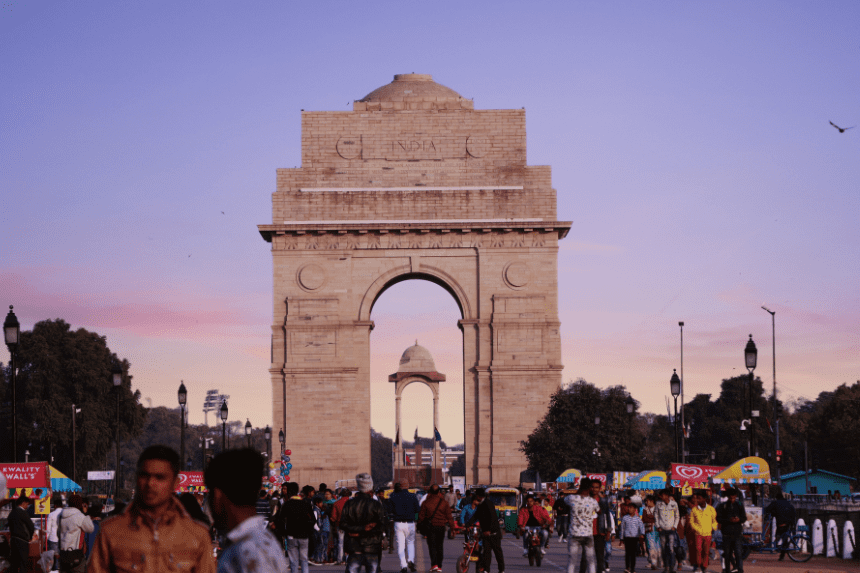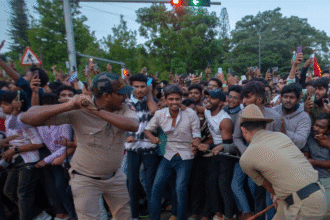Following an unheard-of six-year delay, India is preparing for the count of its people in 2027. Essential for updating important demographic data, this census is among the biggest administrative operations conducted worldwide. Policymaking, welfare program design, resource distribution, and the definition of electoral boundaries are among the areas that the census affects. For residents, legislators, and stakeholders equally, knowledge of the India Census 2027 population count process, its delays, and their consequences is vital given its scope and relevance.
- Why Has the India Census 2027 Population Count Been Delayed for Such a Long Period?
- Why is the population count for the India Census 2027 different from previous censuses?
- How will the population count of the India Census 2027 affect governance and policies of India?
- Under what administrative and legal framework will the India Census 2027 population count be governed?
- How Can Stakeholders and Citizens Help to Support the Population Count of India 2027?
- What wider ramifications of the India Census 2027 population count might there be?
- End
Why Has the India Census 2027 Population Count Been Delayed for Such a Long Period?
Originally set for 2021, the population count for the India Census 2027 was repeatedly delayed, mostly owing to the epidemic of COVID-19 pandemic. The administration stopped planning when the epidemic started claiming public health issues. The census did not start right away, even if many events restarted once limitations relaxed. Experts, legislators, and the general public have started to wonder about the causes of the protracted delay.
With the main reference date for population counting established on March 1, 2027, the administration has declared that the census will now take two phases. The reference date will be October 1, 2026, for areas experiencing seasonal snowfall, and accessibility difficulties include the Himalayan states of Uttarakhand, Himachal Pradesh, Ladakh, and Jammu & Kashmir. The administration has not stated the precise day when enumeration will start, despite this declaration, therefore creating some doubt on the chronology.
The delays are noteworthy as the government depends mostly on census data. Without updated data, one runs the danger of misallocating resources, excluding vulnerable groups from social programs, and basing policy decisions on obsolete information. Thus, presently, the top focus is on beginning and finishing the India Census 2027 population count on schedule.
Why is the population count for the India Census 2027 different from previous censuses?
The first-ever gathering of caste statistics for the next census marks one of the most remarkable aspects. This marks a departure from 1931. Under British colonial control, caste classification was a major component of census operations, but it was dropped following independence because of the sensitivity and political ramifications of caste identities in India.
Including caste statistics in the India Census 2027 population count should help legislators to have a more complex understanding of the social fabric of India. This information will enable target affirmative action policies to be more successfully targeted and welfare program design to be more fairly assisted. The government will thus have to carefully handle privacy, political abuse, and societal problems, as well as other issues.
Beyond caste, the census will keep gathering normal demographic data, including age, sex, literacy, occupation, and living circumstances. Federal and state governments benefit from this extensive data collection in making wise decisions about social welfare, health services, education, and infrastructure development. Read another article on Maoist insurgency
How will the population count of the India Census 2027 affect governance and policies of India?
The India Census 2027 census of people is significantly more than a headcount. It provides thorough demographic insights necessary for every level of planning and government. The information gathered guides the execution of initiatives ranging from rural development to urban housing, helps allocate billions of federal dollars, and determines voting constituencies.
Respected development economist Professor KP Kannan stresses the important function of the census: “It is not only a count of the population in a nation. It offers priceless information required on a micro level to guide decisions. The census’s usefulness resides in its granularity, which helps legislators customize programs to fit the particular requirements of different areas.
For ten years, delays in the census have meant India has been depending on antiquated 2011 statistics. Millions of people, particularly those in underprivileged areas, are eventually affected by this, including misdirected welfare programs and improper resource allocation. Correcting these inequalities and helping India to achieve its development objectives depend on the accurate and quick completion of the India Census 2027 population count.
Under what administrative and legal framework will the India Census 2027 population count be governed?
Operating under the Census Act of 1948, a legislative framework empowering the government to carry out this enormous undertaking, the census. The act does not, however, provide a rigid timetable for census administration or result publication. This legal adaptability has let the government postpone the census due to unanticipated events like the epidemic.
This adaptability presents problems even if it is useful. Census delays without a set schedule run the danger of producing a data gap, compromising planning and control. The government’s latest declaration marks a return to normal census practice following a protracted break, therefore restoring a clear timeframe for the India Census 2027 population count.
The census is carried out administratively in several phases, starting with housing data collection, then population counting. Thousands of trained enumerators are visiting homes throughout the nation. Smooth operations and guaranteed community collaboration depend much on local administrations.
How Can Stakeholders and Citizens Help to Support the Population Count of India 2027?
Effective completion of the India Census 2027 population count depends on citizen involvement in addition to government performance. People should realize the value of the census and completely assist when enumerators visit their houses. Generating dependable data requires precise information provision.
Policymakers, municipal authorities, and community leaders also have to promote the advantages of the census and solve issues around data privacy and caste classification. Open communication can help to lower false information or fear and foster trust.
Once the census results come out, social welfare, healthcare, education, and urban planning stakeholders should start getting ready to apply the revised data for more efficient program design and resource allocation.
What wider ramifications of the India Census 2027 population count might there be?
Being the most populous democracy in the world, India’s demographic composition shapes social and economic developments all around. Crucially for long-term planning, the India Census 2027 population count will reveal insights into urbanization rates, migration patterns, fertility trends, and age distributions.
Furthermore, gathering caste statistics will guide debates on affirmative action rules and social justice, which are still very important in India’s varied population. The results of the census will also support India in reaching sustainable development targets and add to the global development statistics of the United Nations.
End
An important task at hand and occurring at a turning point in India’s development process is the Census of India 2027. This census promises to provide revised, thorough demographic data required for fair policymaking, effective resource allocation, and inclusive government following a protracted wait. The public, government agencies, and community leaders working together will determine its success.
Staying informed, working with enumerators, and supporting openness would help all participants help to produce a census that accurately depicts India’s population. Supporting the aim of fair development and social advancement, the India Census 2027 population count will eventually direct India’s future for the next ten years and beyond.








